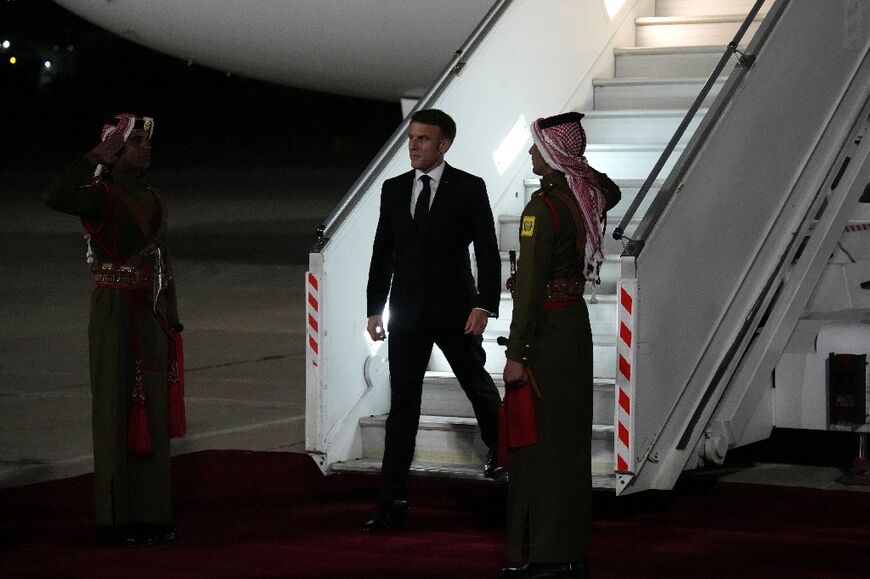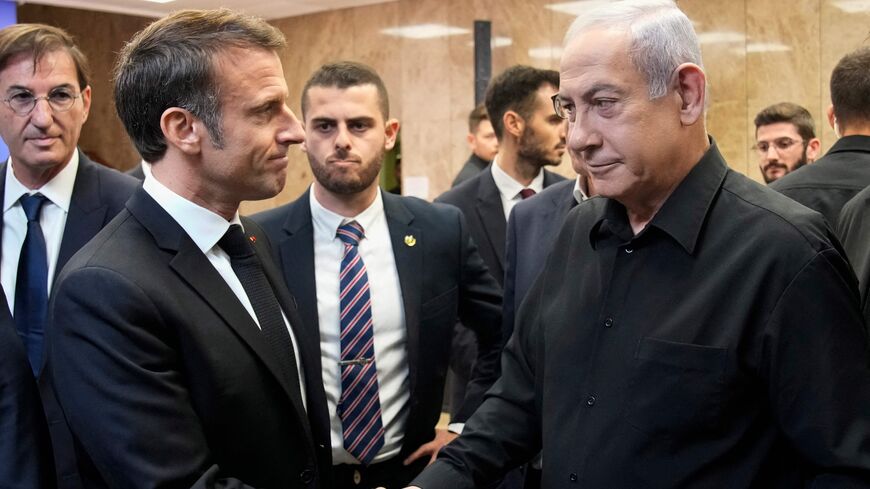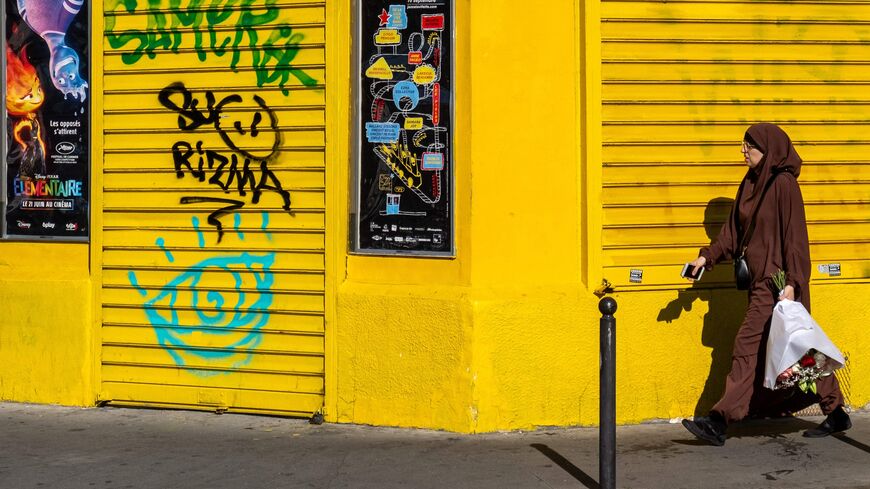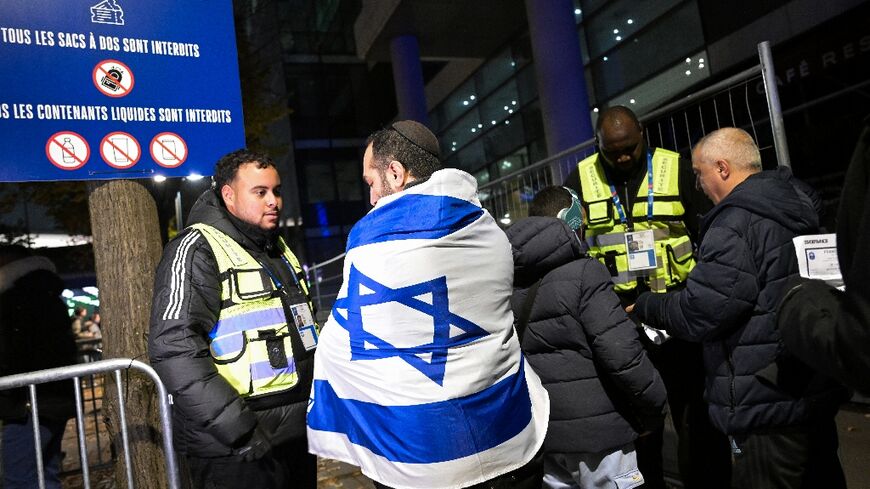Mideast conflict stirs up French domestic tensions
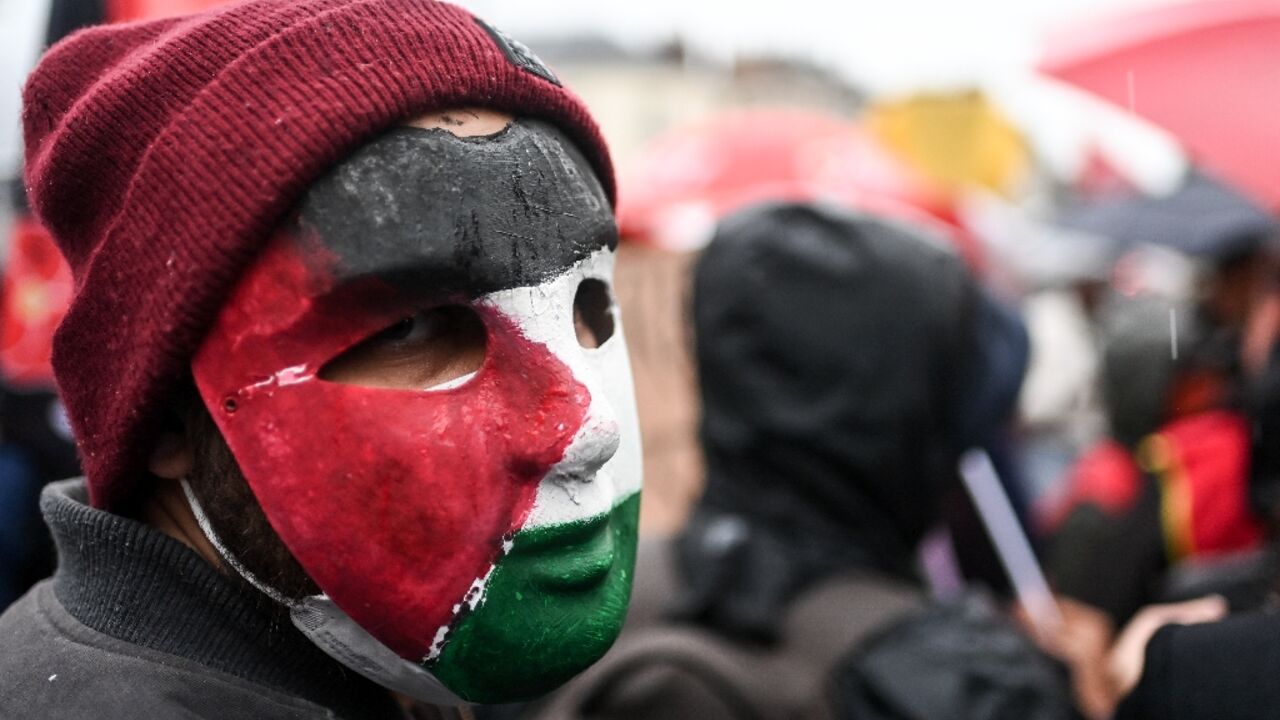
The flare-up in the Middle East sparked by the Hamas attack on Israel is rekindling deep tensions in France.
Its colonial history and dark World War II memories make debate over the war between Israel an Hamas often angry and occasionally venomous.
France is highly sensitive to the Middle East conflict, being home to around half a million Jews -- more than anywhere else outside of Israel and the United States -- many of whom keep in close touch with friends and family living in Israel.
Muslims, mostly of North African descent, meanwhile account for at least six million of France's 70-million-strong population, making it the biggest Muslim community in Europe.
The Palestinian militant group Hamas mounted an attack on Israel on October 7, killing more than 1,400 people and taking 222 hostages, according to Israeli authorities. Thirty French nationals were among those killed and at least one of the hostages is French.
Israel has responded with relentless air strikes and a near-total land, sea and air blockade of Gaza, where the Hamas-run health ministry says 6,546 people have been killed in the war.
- 'Highly inflammable' -
"The French debate is highly inflammable," said Jean Garrigues, a professor of political history at the University of Orleans in central France. "Even many of the so-called experts are biased, which makes it very difficult to establish an objective neutrality."
Garrigues said there was an undercurrent of what he called "repentance" in France.
It is linked to both its history as colonial master -- notably in Lebanon, Syria, Algeria, Tunisia and Morocco -- and to collaboration during World War II when some officials in France helped the German occupiers round up Jews and send them to death camps.
This makes President Emmanuel Macron's government mindful of balancing its strong support for Israel's fight against Hamas with an equally firm stance on the protection of Palestinian civilians.
In the latest example of deep polarisation among politicians, National Assembly Speaker Yael Braun-Pivet drew heavy criticism for her trip at the weekend to Israel, where she gave public support to Israel's "right to defend itself".
Far-left firebrand Jean-Luc Melenchon accused Braun-Pivet of "setting up camp in Israel to encourage the massacre" in Gaza.
Braun-Pivet retorted that she was "very shocked" and in turn accused Melenchon of using the French term "camper" as a veiled reference to concentration camps.
Prime Minister Elisabeth Borne quickly weighed in, saying the parliament speaker had been the target of "despicable accusations", with others accusing Melenchon of anti-Semitism.
The remarks were tantamount to "calling Jews the party of foreign interests and of war", said Yonathan Arfi, the president of the Council of Jewish Institutions in France (CRIF).
- 'Beyond community lines' -
Melenchon's party, La France Insoumise (France Unbowed) has also stayed clear of calling Hamas a "terrorist" organisation after the attacks.
That has created deep divisions with the Socialists and Greens, with whom it is allied in a loose leftist opposition coalition known as NUPES.
"The Israel-Palestinian conflict resonates far beyond community lines in France," said Marc Hecker, a researcher at IFRI, a French think tank on international relations.
It is also the only geopolitical topic "that can make tens of thousands of people take to the streets", he said, unlike the war in Ukraine.
Hecker said pro-Palestinian sentiment could be found as much in neo-Gaullist quarters seeking closer ties with the Arab world after the colonial war in Algeria, as among leftist Catholics and far-left anti-imperialist movemements.
Thousands of people demonstrated in several French cities at the weekend in support of Palestinians, some shouting slogans designating Israelis "murderers" and Macron as "their accomplice".
Each major past rise in Mideast tensions -- including Israel's 2009 and 2014 Gaza offensives and the 2000 Intifada -- was followed by violent and anti-Semitic acts in France, the experts noted.
There were no incidents of notable violence at the recent demonstrations, which analysts said was perhaps due to police bans on such protests, and to lingering shock at the brutality of the Hamas attack.
But they also said that Israel's ongoing bombing of Gaza, which the Hamas health ministry says has killed more than 5,800 people so far, made violent acts in France increasingly likely.
- Macron's 'high-wire act' -
Philippe Raynaud, a political scientist, said Melenchon's LFI party was "pouring oil on the fire" of existing divisions for "electoral gain" in the hope of winning votes from young Muslims in low-income areas around French cities.
This, added Hecker, was forcing Macron into "a very uncomfortable high-wire act".
The president, who visited Israel and the occupied West Bank on Tuesday, needed to show "strong solidarity with Israel", at the risk of appearing biased to pro-Palestinians, Hecker said.
But, said the researcher, "he is also trying to make France's traditional voice heard, in favour of civilians and of relaunching the peace process".


